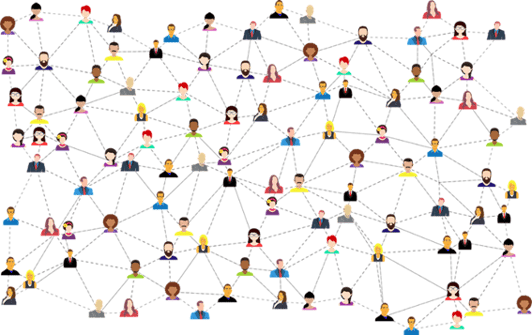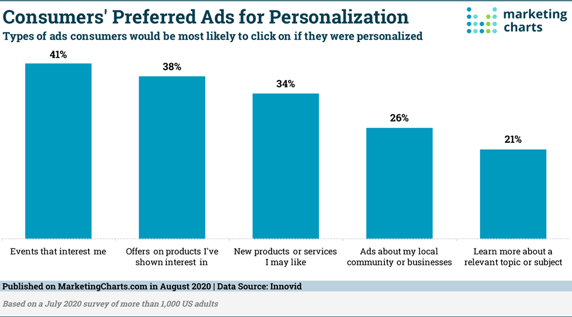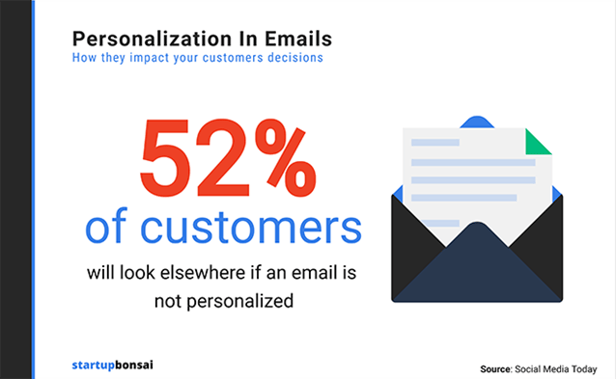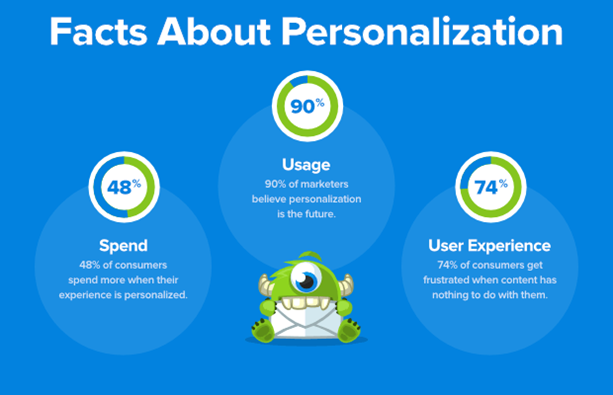Driving traffic to your website is one thing, but getting all those visits to convert into real engagement and revenue is another.
The success of any online business or presence is enticing potential consumers and followers to make a real connection. Having that connection leads to conversion and the growth of a consumer base. Marketing has become increasingly sophisticated in recent years, and advances like AI for marketing and sales have transformed what's possible.
But how can companies make an impression on potential customers who have seen it all before in an online world where we are bombarded with similar offers and enticements? The answer is to connect with them individually: to personalize not only the content and offers they are shown but even the way they see a webpage from the moment they land on it.
We all respond to being treated as individuals, from the coffee cup with our name on it to the suggestions our local shopkeeper makes based on our typical purchases. For instance, you may receive a call that a business made on their virtual call system, but you may be inclined to hang up if the person on the other end of the call doesn't address you by name. Being treated as an individual is helpful, time-saving, and can even make us feel good.
Personalization is the key to unlocking loyalty and sparking interest. But it's a tactic that would be impossible without the technology that drives it. Technology allows a company to use hits to their website and customer behavior to carry out data wrangling, providing valuable information to target personalized marketing.

What Is Personalization for Marketing?
A brand's personalized marketing creates tailored experiences matched to an individual customer's tastes, interests, needs, and behavior.
It means showing individuals different content, landing pages, adverts, and even sending personalized emails. It's a strategy that relies on varying marketing material to fit consumers based on collected data about interests, shopping preferences, and purchase habits.
This approach goes beyond just inserting a customer's name. Analytics make it possible to show customers content that feels unique and personally applicable to them.
All this is made possible through technology; as we've seen, personalization relies on data, and there are a variety of approaches and types of software to handle data, such as PySpark datatypes.
Customers respond much more frequently to marketing emails customized for them than to generic ones. Discounts given out shortly after a customer has interacted with a website then drive customers to return and build loyalty.
The Benefits of Personalization
We've touched on the fact that personalized content produces better conversion and engagement, but let's look at how precisely this method of marketing benefits companies.
Of course, it relies on quality content, which can require time to produce, but it is now possible to use AI to automatically create content, especially where the content is in the form of ads or offers. AI should help create genuinely individualized rather than generic content, as this is what customers now expect and are attracted to.
Customer Experience
When a brand seems to be talking directly to you, it is not only more interesting and appealing; it builds trust and faith in its products and services. Psychologically, we tend to trust those who understand and know us well. Personalization fosters this feeling and creates a kind of relationship.
Once this kind of trust is established, the effect snowballs. A consumer is then more amenable to further ads and tailored offers going forward. If your experience leads you to feel a brand generally sends you information that interests you, you are far more likely to pay attention to the next thing they send, and so on.

It's always been desirable to offer consumers a choice; a range of products and services, but within that, it should be intuitive and easy to find the particular item they want. Personalized marketing should guide and help rather than restrict what customers can choose. The idea is that it helps the brand but also helps the customer.
Cost
Personalized marketing can give brands a better return on their investment, as targeted, tailored content ensures a lower rate of consumers ignoring marketing communication.
Therefore, what has been paid for is working harder and more effectively compared to financial outlay. There's also evidence that personalized marketing encourages higher spending by consumers. This is because there's an impulse-buy factor with personalized content.
If a consumer habitually looks at shoes rather than other clothing items, when targeted with shoes in their size and preferred styles, they are far more likely to make a quick buying decision. If a brand appears helpful and saves consumers time, there's a greater feel-good factor about their purchases, less regret about spending, and obviously, greater customer satisfaction.
Conversion Rates
All brands want to improve conversion rates, but cart abandonment is a huge problem. Some sources report around 80% of customers walk away from the items they've added to their cart.
But personalizing content has been shown to reduce cart abandonment and increase conversion rates. Making sure a customer's journey to and through an online business, providing the right pop-up or offer at the right time, is very effective in converting a casual browse into a purchase.
Giving customers what they want and saving them time means they see the brand as helpful and providing extra value. This relationship feels like a two-way street; the brand gets the purchase it wants, the consumer feels assisted, and time has been saved.

Best Practices
So, as we have seen, the benefits of personalization make it a worthwhile tactic. But the right resources and software are necessary; you may need to modernize legacy applications or employ specialist staff.
There are also ethical points to consider in how a company approaches this form of marketing. It involves gathering customers' data and needs due care and attention, but there are other considerations that we will look at now.
Gather Data Responsibly
Customers benefit from personalized content and, on the whole, are positive about it. But it is underpinned by data collected by companies about customer behavior and habits, and this has to be treated with care.
Data is gathered through code added to the website or customer surveys which analytics use to track consumer behavior. This shouldn't be intrusive in any way. Still, while some customers find it helpful and convenient to have the item they were searching for pop up automatically (and many even expect this to happen), some find it uncomfortable. It can feel like being watched.
It's helpful to think of yourself as a customer when planning any marketing strategy, particularly personalized content. If you find something intrusive, it might be better to think again.
There's also the issue of bias. There are ways to prevent bias in marketing AI and ensure you aren't stereotyping a particular group or lumping demographics together based on assumptions that may be insulting or discriminatory. This can be very counterproductive if you want to build relationships.

Resources
Personalized marketing is only as effective as the planning, thought, and resources you give it. But it's also necessary to monitor and test as you go. Some of this can be done using technology. It's good to know when to automate, but you will also need skilled professionals to be part of this process.
You'll need a team including technical experts, campaign designers, customer service experts, specialists in developing use cases, and above all, the right management to properly coordinate the campaign.
Ongoing testing and assessment is something all personalized marketing benefits from. You could be pouring resources into tactics that aren't working for your brand; if you find this out quickly, there is time to change directions and approach. A good team, as well as the right tech, will make this possible.
Segment Your Audience
Segmenting your audience relies on using the gathered data to organize your consumers based on buying patterns, spending habits, demographics, and the interest they have shown in various items.
Segmenting not only allows you to know your consumer base to a degree, but it also helps you decide what marketing tactics, such as emails, ads, or offers, are going to be the most effective.
As we've said, technology can help with this, but common sense and knowing people is also an advantage. If most of your customers are accessing your site on mobile phones, some tactics may be better than others to target this group.
Have you ever tried sales intelligence tools to segment your target audience? If not, think about it! With sales intelligence, you can easily find out who your audience is and personalize your outreach afterward.

Looking Forward
The good news is that consumers are, for the most part, already used to personalized marketing and even prefer it. The way ahead for this marketing approach will likely be ever-increasing sophistication and nuance, and personalization that is a closer match to an individual's needs and wants.
Add-on services based on these preferences and tastes might also develop. For example, perhaps a customer purchasing items for a business trip needs an NDA template. Free giveaways that match items purchased might be a growing trend to build rock-solid customer loyalty and drive sales.
Tactics will continue to diversify and expand in personalized marketing, giving consumers more help in their buying journey and ensuring they see brands as mindful of their needs, time, and tastes. Most of us like to be seen as individuals rather than one of the crowd, and AI-powered personalized marketing will continue to capitalize on this human need.
Pohan Lin
Pohan Lin is the Senior Web Marketing and Localizations Manager at Databricks.


